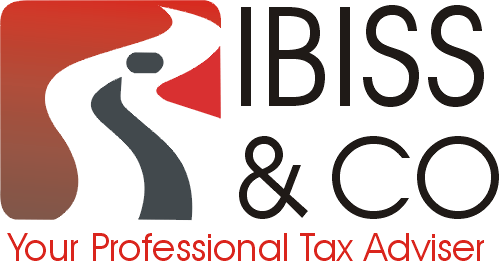Starting your own business in the UK can be exciting yet stressful. You’ll be thrilled to start your journey as an entrepreneur and be your boss! However, you’d need to make many decisions before you kickstart your new venture. Deciding upon a business structure is one of the pressing questions that will need a conclusive answer before starting your operations.
As a new business owner, it’s wise to hire the services of a chartered accountant who has significant expertise in business formation, tax and financial services. They can help you decide on a business structure that best suits the needs and requirements of your business. A chartered tax advisor who has significant experience setting up businesses can help you understand the tax complications of different business structures and help you choose the one that fits the bill!
You need expert help to ensure the sustainability and longevity of your business, and hiring businesses advisors and chartered accountants should be at the top of your priority list. In saying that, it is always beneficial to have knowledge of the different business structures in the UK, to help you understand the various advantages and disadvantages that come with everyone. Let’s look at the different types of business structures you can choose from in the UK.

Sole Trader
You can choose to operate as a sole trader in the UK. This is one of the most common and accessible business structures to register and operate in the country. In this business structure, you’re self-employed and have total control over every aspect of the business. However, your business doesn’t have a separate legal identity, and you’re personally liable for every loss or debt that the business incurs.
You’re entitled to keep all the business’s profits with time. In saying that, you’re liable to pay income tax and national insurance by completing a self-assessment tax return every year. You can always get specialist self-assessment and tax returns consulting for a breezy tax return process every year. There is no limit to your earnings; however, you’ll be charged a higher tax rate if your income surpasses a certain threshold.
One of the most significant disadvantages of operating as a sole trader is that you’re liable for all losses and debts, and your assets will be at stake in liquidation or bankruptcy. You do enjoy total control over the running of the business, but it does come at the cost of attaching your personal assets to your business.
Sole traders also benefit from adhering to fewer regulations, and the filing requirements are also not as stringent as other business structures. People working as hairdressers, electricians, and plumbers often choose sole trader as their preferred business structure.

Partnership
If you have a partner willing to join hands with you to create a robust and sustainable business, you can choose a partnership structure for your organisation. A partnership is created between two or more individuals who agree to share the profits or losses in a pre-defined ratio.
All partners are liable to share the risks, costs, benefits, and other responsibilities associated with running the business’s daily operations. You can choose to go for a conventional partnership agreement where all partners are self-employed and the business is an unincorporated entity. All the partners are personally liable for losses and debts incurred by the business. Also, every partner is responsible for other partners’ negligence and gross misconduct.
You can also choose to go for a limited liability partnership, where you can enjoy all the benefits of a conventional partnership without worrying about being personally liable for any debts or losses that the business incurs. These partnerships are usually driven by profits and are highly favoured in professions such as law and accountancy. In a limited liability partnership, you must have at least 2 partners responsible for the business’s daily operations.
The limited liability partnership must also be registered at the Companies House and with the HMRC. There is also a requirement to prepare the annual accounts of the business that are needed to be filed with the relevant authorities. Partners must prepare their self-assessment tax returns and pay taxes and national insurance on their share of the profits to the HMRC. It is always beneficial to hire the services of a chartered accountant firm that can help you with all your LLP tax, finance and accounting needs.

Limited Company
You can also opt to open up a limited company to run your business. A limited company is a private entity with its own identity, separate from yours. The company is owned by shareholders that choose a board of directors to oversee the business’s daily operations. The company is solely responsible for daily operations and is liable for every debt and loss incurred. The owners, shareholders and directors are not liable for the company’s finances, and their personal affairs are separate from the entity.
Profits generated by the company are subject to corporation tax. After tax and other relevant expenses are deducted from the profits, the company has the right to retain them and distribute them as dividends amongst their shareholders. Limited companies are subject to rigorous rules and regulations enforced by the HMRC. They can either be limited by shares or limited by a guarantee. They also have strict rules regarding filing requirements and annual reporting.
Most limited companies have expert accountants and tax advisors who help them with all their complicated financial matters. Experts such as IBISS & CO have expertise in handling accounts of limited companies. Getting such help ensures that your financial matters are in safe hands, and you can focus on other pressing areas of the business.

With a limited company, you can choose a remuneration package for yourself and other directors at your discretion provided that you own the majority of the shares of the company. The business has the right to retain the profits and reinvest them for future use. You can build and protect your brand as a limited company. You can always claim back expenses on the business on the tax side of things.
Most limited companies operate on the limited by shares structure. This states that the shareholders are only responsible for the financial liabilities and losses of the company to the amount of ownership or shareholding they have in the company. If a guarantee limits a company, the businesses essentially have members instead of shareholders who act as guarantors.
You need to follow specific requirements to form a private limited company. The business should have at least one director over the age of 16. The company must have a registered place of business within the UK. The business must adhere to all government regulations and operate in good faith. The business also needs to issue at least one share at the time of incorporation.

The limited liability potential and the tax advantages make limited companies one of the best and most popular business structures in the UK. Once the company is incorporated, all filings and current directorship are made public. The tax structures are pretty complicatedfor limited companies, and you’d need to hire a top accounting firm to help you with daily financial, tax and accounting issues.
You can also opt to create a public limited company (plc) if you want to expand and grow your business to new heights. A PLC enjoys all the benefits of a limited company. Its shares can be traded amongst the public in the stock market, which can be used to raise a considerable amount of money for expansion and growth opportunities.
The costs of operating and running a plc are significantly higher than any other business structure. You also need to issue a minimum of £50,000 worth of shares before the company can be registered as a plc. There is also a legal and statutory requirement to hire at least two directors to oversee the business’s daily operations.
Choosing The Right Business Structure
As you can see above, all business structures are unique and have different features that can work well for your business. There is no one-size-fits-all approach that you can adopt for your business. You need to have clarity over your business goals as it will help you decide upon the best structure for your business.
Setting up your business as a sole trader can be a viable option if you’re looking for simplicity. However, if you have a high-cost start-up, it may be not ideal due to personal liability. It is really important to understand your business function and size when making the business structure decision.
A partnership structure can be best suited for businesses with more than one person willing to join hands to run the business. However, you need to place faith in your partners to ensure the smooth running of your business, and there is also the matter of personal liability. If you want to enjoy the benefits, you can also consider creating an LLP. However, the operating and managing costs are high compared to a conventional partnership.

If you’re operating a big business or are rapidly expanding, you’d be better suited to choose the limited company business structure. There is no risk of personal liability, and you won’t be liable to pay off the business debts with your money or assets. In saying that, there are a lot of administrative headaches to deal with when operating a limited company. You need to perform your duties to the best of your abilities to ensure that you don’t get fined or are removed from your position as a director.
If you’re looking to raise a considerable amount of capital to grow and expand your operations, you can also consider opening up a public limited company. A PLC’s shares are traded publicly on the stock market, and you can sell shares widely to gather capital.
However, PLCs come under a lot of scrutiny, and there are extensive rules and regulations that you need to adhere to to ensure your business’s smooth running. There is also a greater responsibility to cater to stakeholders’ needs to ensure that you are not removed from your position!
Get specialist legal, tax, and finance advice from external professionals to ensure that you run the business. The last thing you want is to get embroiled with tax, finance and accounting issues that impact your ability to run the business smoothly.
Why Use Accountant?
While you can incorporate your business structure yourself without professional help, it is always wise to work with a professional who has significant expertise in business formations services and can help you start the business on the right foot! Processing documents accurately and liaising with relevant authorities can take some time, and a professional will ensure that everything is conducted with ultimate efficiency. It also frees up your time to focus on more pressing issues of your business.

f you’re on the lookout for quality accountants and the best personal tax advisors in the UK, you can’t look past IBISS& CO.We have established ourselves as one of the best accounting firms in the country, providing a variety of services. We have recently opened up our office in Walsall and are aiming to provide top-notch services to businesses and individuals in the area. We have a team of expert chartered accounts and business advisors in the UK who have significant experience dealing with complex tax and accounting matters.
We go above and beyond to provide quality services to our clients and suggest legal ways to reduce the amount of tax they have to pay to the HMRC. If you own a rental property or have a complex business tax structure, we help you out. We can help you with your landlord self-assessment tax return, inheritance tax planning, non-resident landlord self-assessment, etc. Contact us today for more information.




